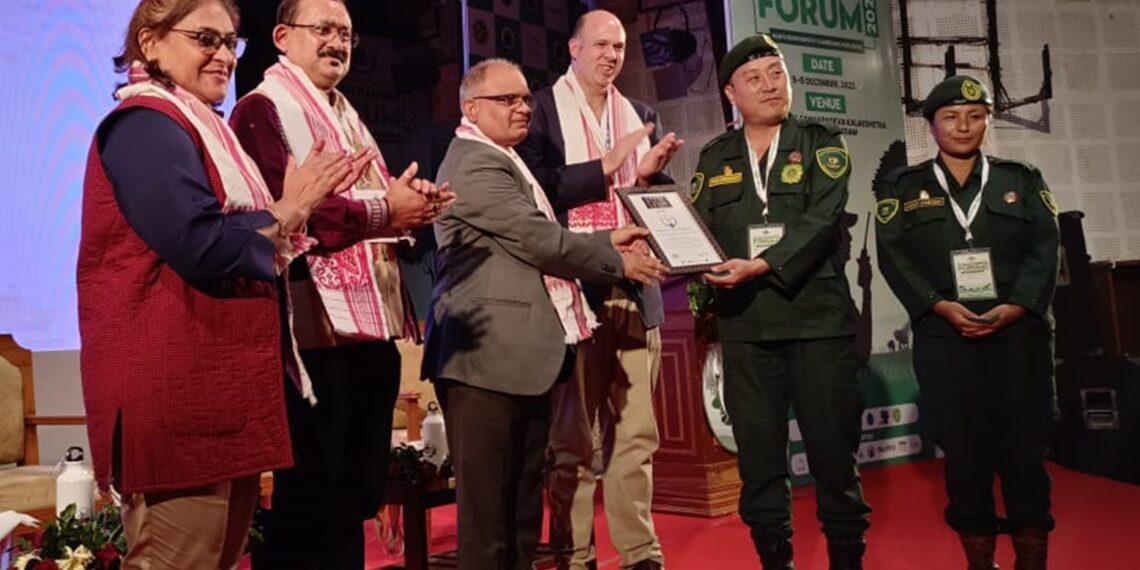GUWAHATI: The First Asian Ranger Forum (ARF) drew to a close in Guwahati with a resounding call to the global community, governments, and conservation organisations to prioritise inclusivity in ranger workforces.
The Guwahati Declaration, the culmination of the forum, emphasised the vital role of an inclusive ranger workforce in safeguarding global biodiversity.
Addressing the closing ceremony, MK Yadava, Head of Forest Force in Assam, praised the tireless efforts of forest rangers worldwide.
He stressed on the shared responsibility in facing the challenges of climate change, expressing concern about its impact on wildlife and communities living near protected areas.
“The impacts of climate change are evident in Assam as well. The most impacted people because of climate change are the poor people living in the fringes of the forest. The rich live in cities and are not impacted by these issues however they have invited different sets of problems by themselves. I believe the Asian Rangers Forum, 2023 has been a success and we shall be happy to host ARF once again in India,” he said.
Chris Galliers, President of the International Ranger Federation, announced the newly elected committee of the Ranger Federation of Asia.
Bunty Tao from India was elected as President, with Manav Khadka of Nepal as Vice President.
The newly-elected President, Tao, expressed gratitude for the support and urged unity among rangers across the diverse Asian landscape.
The ARF also witnessed the announcement of the IUCN WCPA Rangers Award, recognising the dedication of rangers to conservation efforts.
The closing ceremony included the presence of Priya Ghosh from the US Embassy and Dr Bibhab Kumar Talukdar, Secretary General and CEO of Aaranyak.
Asia, home to 70% of the world’s indigenous people, stands at the forefront of biodiversity conservation efforts.
Recognising the indispensable contributions of indigenous people, local communities, women, and other under-represented groups, the ARF urged for equal opportunity in ranger employment.
The declaration outlined measures such as anti-discrimination training, policies, and monitoring systems to ensure fair representation at all levels of the ranger workforce.
In a region that has lost half of its natural capital in the last 50 years, the ARF highlighted the critical role of rangers in achieving the Global Biodiversity Framework’s target of conserving 30% of the planet’s land and water by 2030.
The four-day event, attended by 146 participants from 20 countries, including 89 active rangers, concluded with a jeep safari in the Pobitora Wildlife Sanctuary, highlighting the practical aspect of wildlife conservation.















